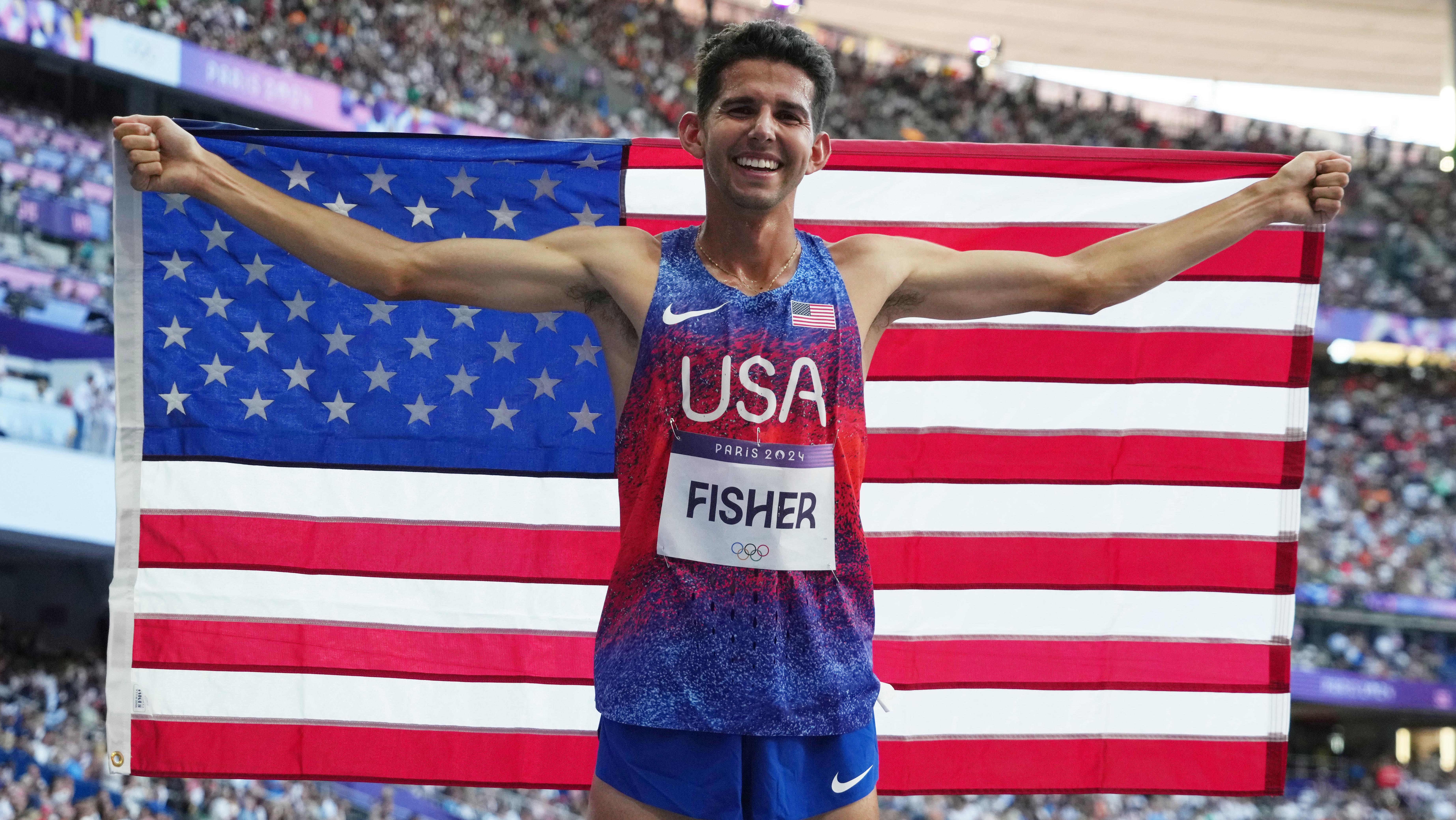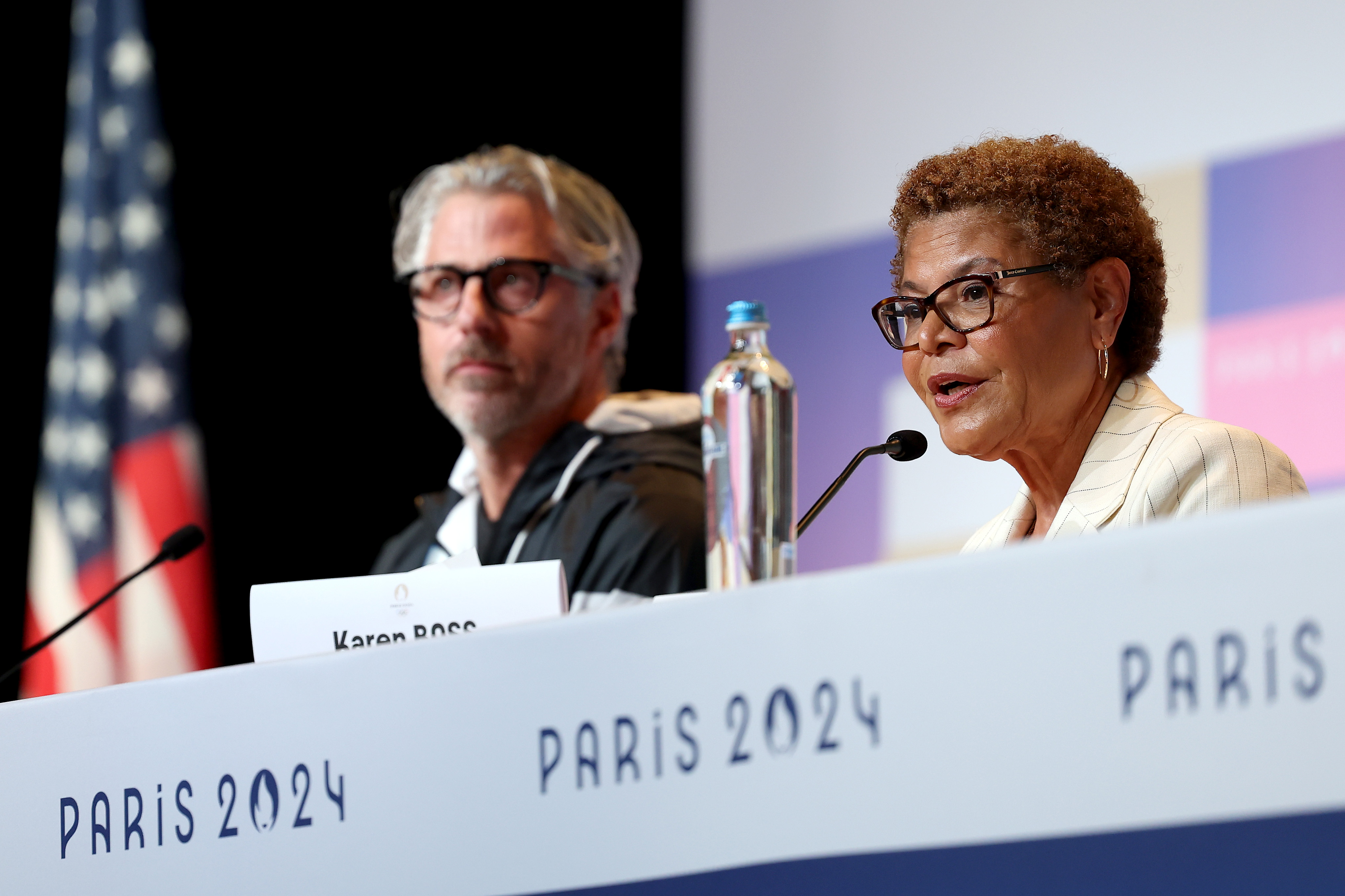Though the 2024 Summer Olympics in Paris are wrapping up this weekend, the Games' lone new sport has drawn widespread attention and sparked debate on the event's final weekend.
Friday marked the official Olympics debut of breaking, a sport that will not be returning for the 2028 Summer Olympics in Los Angeles, with the women's, or "b-girls" competition.
The men's, or "b-boys" competition, took place Saturday, with Victor Montalvo, the U.S. favorite, winning battles against two Japanese b-boys, including b-boy Hiro10 (Hiroto Ono).
Montalvo went on to win the bronze medal in the event, behind Phil Wizard of Canada and Shigekix of Japan, who won gold and silver, respectively.
Montalvo's victory over Ono drew loud boos from the many Japanese fans in attendance, after Ono drew raucous applause for nailing power move after power move — including seemingly endless windmills and headspins — moves that typically get strong reactions from the crowd.
Judges are evaluating breakers on more than just their physicality. They're using the Trivium judging system to grade them on technique, vocabulary, execution, musicality and originality — each accounts for 20% of the final score.
Here is a breakdown of the above criteria on which judges will evaluate breakers:
Technique
Maintaining physiological control while focusing on athleticism, form and spatial awareness.
Feeling out of the loop? We'll catch you up on the Chicago news you need to know. Sign up for the weekly Chicago Catch-Up newsletter.
Vocabulary
The range of moves that display variation and the quantity of moves, ideally with minimal repetition.
Execution
The ability to land and perform moves smoothly, without falls or slips and while maintaining consistency and flow.
Musicality
The ability to stay on beat, syncing movements to the rhythm of the music.
Originality
The capacity for improvisation, creativity and maintaining spontaneity with style and personality.
“In breaking, you have to be musical, you have to bring the essence, it’s not just about the moves,” Montalvo said. “Those moves that they’re doing are amazing. But it’s more than that.”
Eight b-boys advanced from the original 16 after the round-robin phase. The quarterfinalists included breakers from the U.S., Japan, the Netherlands, Canada, France and Kazakhstan.
Montalvo is joined by teammate b-boy Jeffro (Jeffrey Louis), a Haitian-American from Houston, Texas. The two were seeking to redeem the U.S. imprint on the Olympic stage after both American b-girls were eliminated in the first round of Friday's competition, a blow to the country representing the birthplace of hip-hop and breaking culture. B-girl Logistx (Logan Edra) and b-girl Sunny (Sunny Choi) both ranked in the top 12 internationally but came up short of the quarterfinals.
At its root, breaking is an art form that connects mind, body and soul. Key to any breaking battle is the personality, style and individuality of every breaker. They don't know what songs the DJs will spin ahead of time, testing their ability to stay on beat, sync movements to the rhythm of the music and improvise. The International Olympic Committee also licensed about 400 songs for the competition, which allows the b-boys to break it down to vintage funk and hip-hop jams from the 1990s and early 2000s.
“That’s my favorite part of this dance, is that surprise factor — you don’t know what’s going to be played," Louis said. "So, on the way up to the stage, I’m already anxious, like, trying to figure out what’s the beat going to be like once the beat drops. I’m already trying to connect with it. So it’s just a feeling ... it’s a feeling before the dance. And it’s a dance before the moves.”
Friday was the world's first introduction to Olympic breaking, with 17 b-girls taking the Olympic stage for the first time in its history. The b-girls battled fiercely in their own right, but several moments caused some viewers to raise questions about whether the essence of the hip-hop art form was captured at the Paris Games. That included Australia's b-girl Raygun (Rachael Gunn) performing a meme-worthy move called the “kangaroo” and the silver-medal winning b-girl from Lithuania — who is white — donning a durag.
Friday night’s slips, as well as what Zack Slusser, vice president of Breaking for Gold USA and USA Dance, said was a failure by organizers to fully explain the rules and basics of the new Olympic event to the audience “led to what I would call immediate media evisceration of breaking.”




